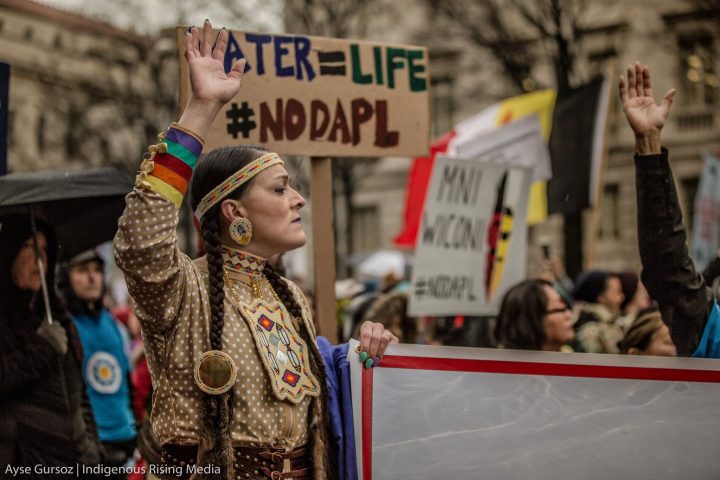During the online protest against Intesa SanPaolo’s involvement in the Dakota Access Pipeline, more than 100 people wrote on the bank’s Facebook page and many more sent messages on Twitter. Many of those involved, including the organizers, (Women’s March – Milan, American Expats for Positive Change, Resistance Events Italy, Italian Climate Network, Democrats Abroad Italy, Madrid Resistance, Progressive Action, Global Exchange – PAGE) received the same hypocritical answer: “Intesa Sanpaolo has limited exposure in the Dakota Access Pipeline project and confirms its commitment to carefully considering social and environmental issues, in accordance with the principles expressed in its own Ethical Code and in line with the international social and environmental standards it adheres to, especially the Equator Principles and United Nations Global Compact, which this project follows. We remain at your disposal and thank you”.
The protest organizers sent the following response: Have you ever met with the Standing Rock Sioux Tribe in order to understand their problems, like the Dutch ING group did? After their meeting, ING announced its total withdrawn from the project on March 21. Even “limited exposure” (although 339 million dollars is not exactly an insignificant sum) still supports a project that has been criticized by both the United Nations and Amnesty International.
Indeed, Victoria Tauli-Corpuz, Special Rappoteur on the rights of indigenous peoples to the United Nations, concluded that the Tribe was not adequately consulted. Financial institutions, certain of the careful consideration this delicate case has received from the US government and the involvement of Tribal governments by authorities, believe that promoters will examine and evaluate such considerations.
The Global Compact and the Equator Principles, at the very least, require the involvement of local communities. It is not possible to build an oil pipeline on sovereign Sioux lands without their consent.
If the bank really wants to be coherent, it must follow the example of ING, BayernLB, Norwegian pension fund KLP and others, such as entire US cities, and consequently divest from this project completely.”






